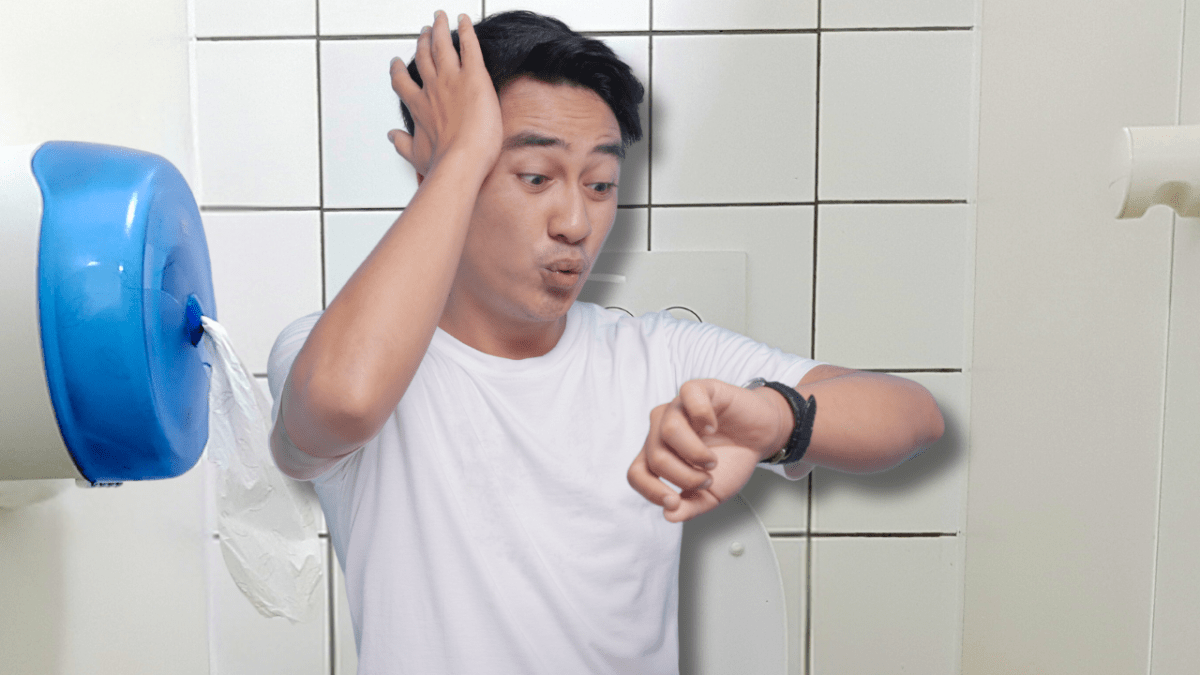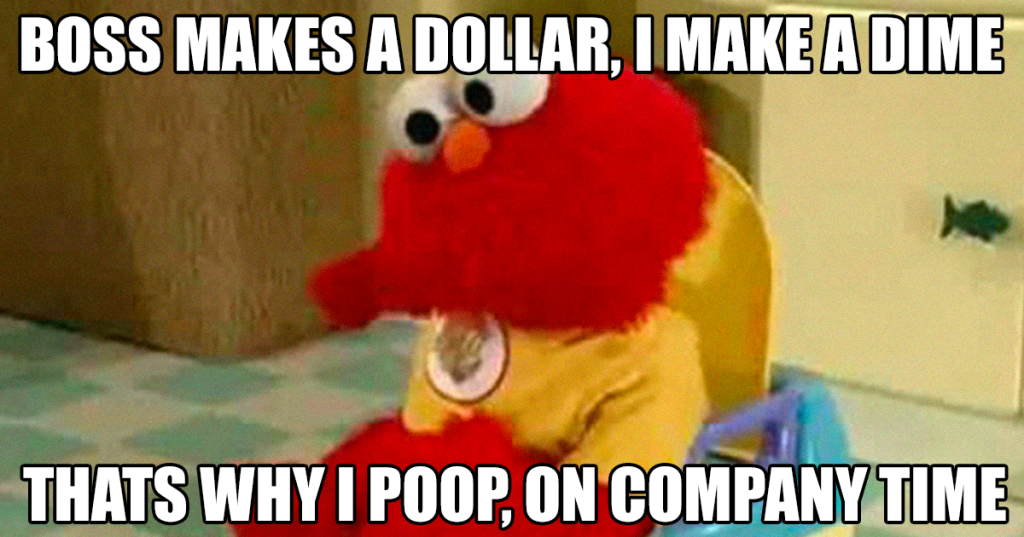
Workers in the call centres of Centrelink have claimed they are now having their toilet breaks timed as part of a new management strategy. Suddenly a guy can’t take an eight hour piss while on the clock anymore? Literally 1984.
Speaking anonymously to Guardian, employees of Services Australia made the claim that a new management crackdown which aimed improve customer service by increased monitoring of staff had some unusual expectations.
The Centrelink workers shared that the new tactics have felt “intrusive and stressful”, as they now feel as though they have to work faster and cut bathroom breaks down to less than five minutes as a result.
I’ll be honest, I’m not even sure it if it is scientifically possible for a person to take a five minute bathroom break while at work. I definitely never have.
It’s as the classic adage goes:

The new workplace expectations see Centrelink’s staff using “auxiliary codes”, which is basically just how call centre workers change their availability status during a shift so that they don’t receive calls when they aren’t at a phone.
When a call centre operator at Centrelink needs to take a break they flick a switch that changes their work status, and then their supervisor can see how long they are away from their phone for.
This applies to when they are taking a toilet break, tea break, five minutes to stretch, smoko, or answering a private call. All things that sometimes just have to be done while you’re at work.
However these different breaks have set times, and when a call centre worker at Centrelink fails to return to work in the amount of time that is allotted for each break, they are flagged as “non-adherent”.
According to claims from staff, spending too much “non-adherent” time is clocked by management due to the losses it causes in customer response times.
As per the Guardian, even as much as 90 seconds of lost time a day can result in a warning.
Additionally, there had been reports to the Community and Public Service Union (CPSU) that some managers were creating leaderboards that displayed the workers who had “lost” the most time each month, and shared these around the office.
Melissa Donnelly, national secretary of the CPSU, said that this was reflective of a bigger issue with how Services Australia treats its workers.
“There is a deeply entrenched cultural problem in Services Australia and this customer lost time issue is just another manifestation of it,” she said to the publication.
“Rather than treat staff and clients as human beings with distinct and different needs, senior management’s default setting is to monitor and micromanage. It’s a continuation of the culture that led to the Robodebt catastrophe.”
“Staff turnover at Services Australia is unacceptably high and, with offensive and counterproductive workplace practices like this, it’s not hard to see why.”
Last November it was reported that as much as 20% of Centrelink staff were ready to resign.
The average time customers spent on hold for Centrelink was 32 minutes as measured last August. That amount had risen by 15 minutes when compared to the previous year.
But hey, that 90 seconds that someone took to wash their hands after using the urinal? Better crack down on that.
In solidarity of Centrelink’s workers, I am going to go take a 5 minute toilet break, just to scientifically check if it’s possible.
*12 minutes later*
Nope, it’s just not.



